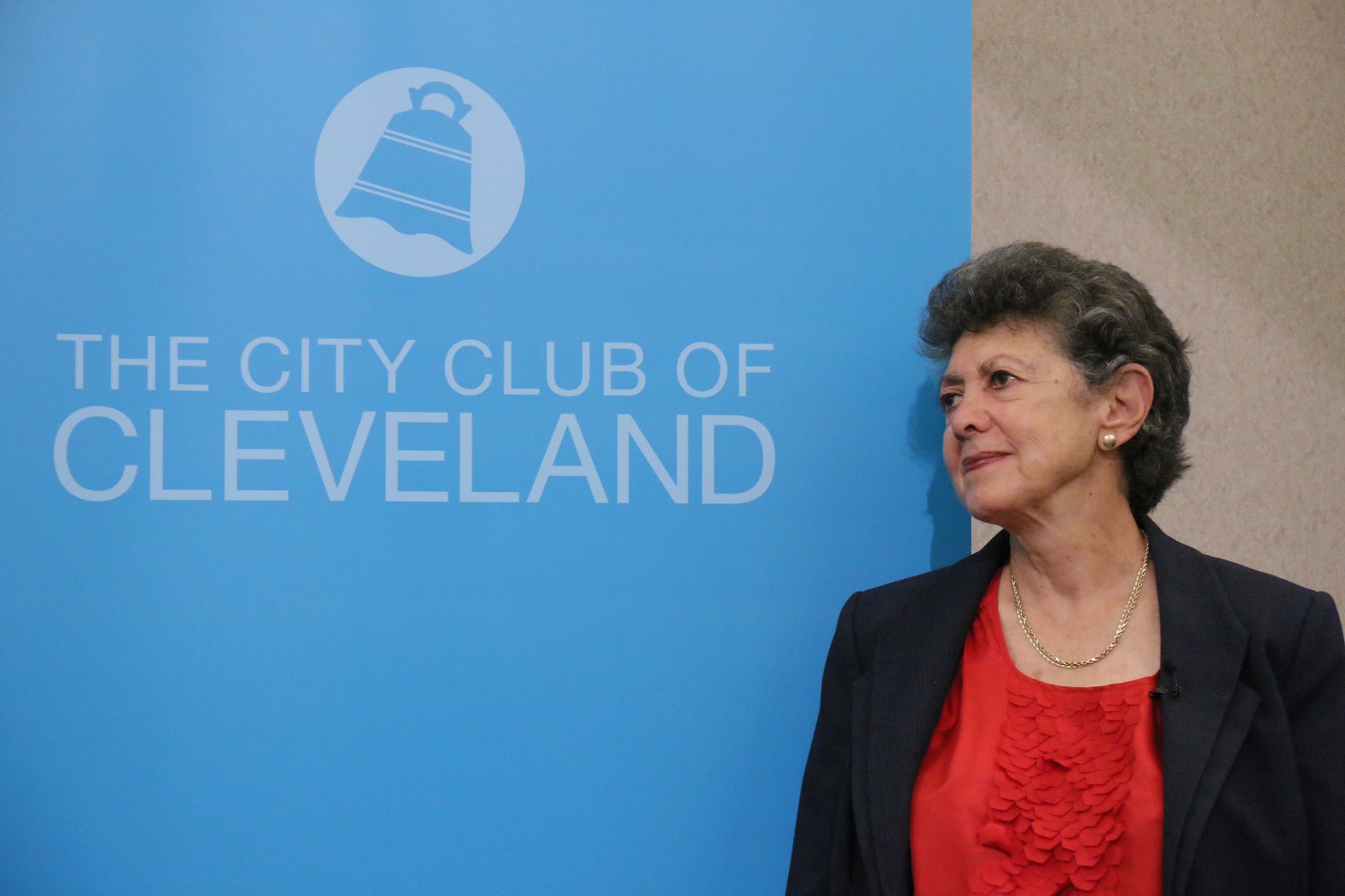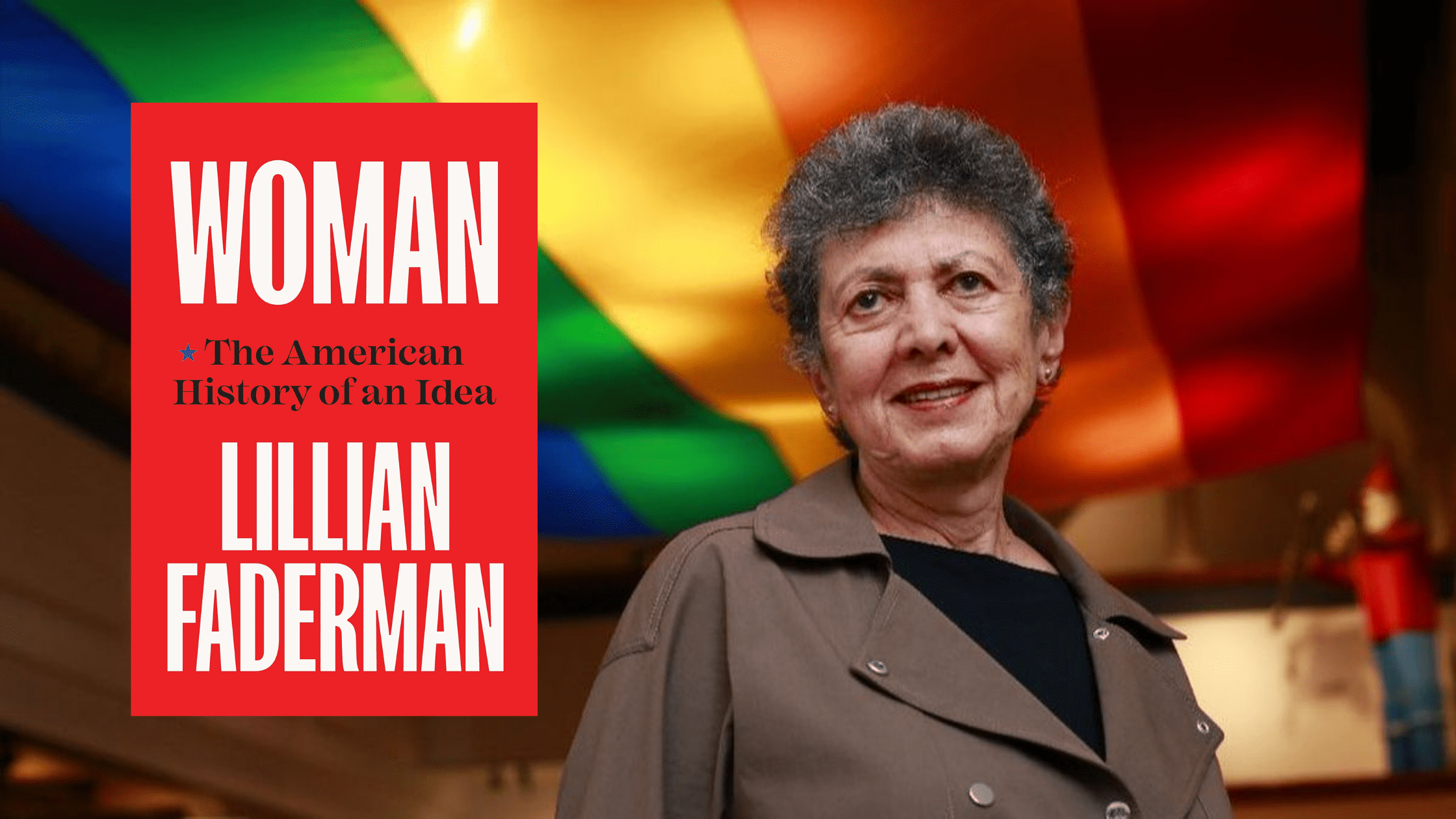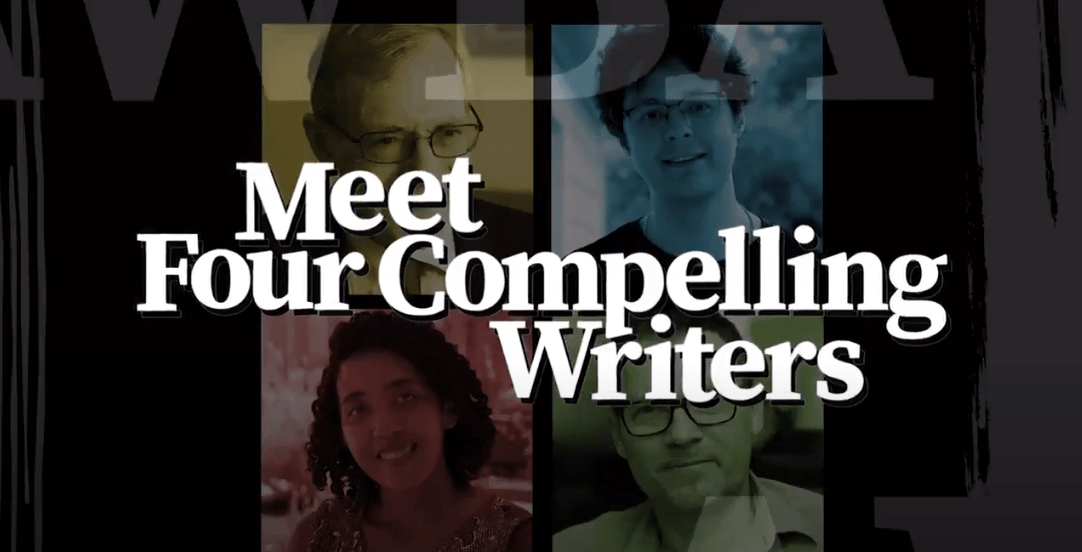When Lillian Faderman spoke at the City Club of Cleveland this September, she ably distilled her ample Anisfield-Wolf winning history, “The Gay Revolution: The Story of the Struggle,” into a half-hour presentation with 20 minutes of questions. Her audience was diverse, and several members expressed awe over a 76-year-old pioneer who came out as a lesbian in 1956.
Among the listeners were 14 young adults enrolled in a seminar on philanthropy in America — all first-year students at Case Western Reserve University.
“Lillian Faderman has long been a hero of mine and her work has informed my own research on early modern women,” said their professor, Barbara Burgess-Van Aken. She called her decision to bring the class “a shamelessly selfish choice which I justified by thinking that I would be giving students exposure to a different sort of nonprofit organization. Little did I realize that Lillian’s topic would spark so much passion among my students.”
Here are snippets of their responses:
One aspect of her talk that I was very interested in was the transition of the movement from being secretive and submissive to being loud and determined. It was very interesting to hear about the secret groups LGBT members would form. Prior to today, I had a vague knowledge of the history of the LGBT movement, but I did not know many of the actual details. It is pretty amazing to see how small acts of bravery here and there soon led to marches and riots.
It was surprising to hear, however, that people can be fired due to their sexual orientation. I most certainly could believe this to be true years ago, but I was not expecting it to still be true. —Claire Nordt
Lillian Faderman’s speech felt more like having a conversation with a person than listening to a scripted talk. —David Kerrigan
One aspect that I enjoyed was that she went through the very early stages of the LGBT revolution. It surprised me that people back in the 1950s would rather be called communist than gay. I know this was during the McCarthy era where it was very, very dangerous to be communist, which made it even more surprising. I like how she did not just tell us this information, but she illustrated it with statistics, evidence, and anecdotes. —Karthik Ravichandran
My visit to the Cleveland City Club and Lillian Faderman’s talk was very enlightening. I actually was hesitant about the course that the talk would take; I didn’t know if it would be a boring speech that would go on a tangent rant, but I was pleasantly surprised that it was a very intellectual and heartfelt speech. —Hemen Aklilu
Ms. Faderman has obviously gone through a lot in her lifetime and it is amazing that she has had the courage and will to do all the work she has to help educate so many people on gay rights. Her presentation was very professional but at the same time very personable. —Kyle Lewis
The City Club of Cleveland hosted an honest and ethical ceremony where the voices of many were summed up by one incredible woman who has done her best to engage, educate, and empower those who listen to her to recognize the hardships that this community has faced and to realize all that there is left to go to truly free these people. —Jacqueline Abraham
Lillian Faderman’s speech was both informative and incredibly interesting. I personally did not know much about the history of gay rights and learned a lot from the experience. It really saddens me that United States history has so much bigotry ingrained in it. We are not really educated about the history of gay rights. In high school, I learned about African Americans’ struggle for equal rights, Native Americans’ plight involving the taking over of their land, and the racism Hispanics face. Never did I learn about the LBGTQ struggle. It is absolutely appalling to me that this demographic received so much hate. —Michael Rowland
Perhaps my favorite question that was asked was about what the proper terms to reference the gay community were. There are so many things out there and it’s hard to know as an outsider what the majority prefers. It can be extremely hard to follow and her response about both gay and LGBT being acceptable was very helpful. It was nice to see her take a light-hearted approach about the acronyms and how many there are to this day. — Anna Goff
I very much enjoyed Lillian Faderman’s idea that the black power movement of the 1960s inspired the gay rights movement to rise up and take action. I had never thought of this connection before, so it was interesting to hear her perspective on it and the influence she believes it has…. In general I was a little disappointed that she didn’t talk about the AIDS epidemic in more detail because personally I feel that it was a large part of the gay rights movement in the twentieth century. To her benefit however, someone did ask a question based on AIDS, which gave her a chance to say how important it was to the struggle for civil rights. —Claire Howard
The most interesting thing at this event was whether or not queer people should be considered a minority group. Some people think that gay people are not minorities because there is only one simple difference that divides them from the rest of this heteronormative society. But wouldn’t that be the case for all minority groups? We are humans with variations in race, nationality, ability, etc. These things are just simple differences like sexuality. People are not in a minority group because they feel like they are oppressed. They are in these groups because they are oppressed. Any minority group, whether it be queer or disabled people, has to try harder in order to succeed in a society that does not acknowledge their human rights. —Mya Cox
I have spoken at a Rotary Club event, and it was much more informal and simple. This event almost seemed like a small-scale TED talk to me. Upon looking at Ms. Faderman, I expected a serious, bland, but informative speech. Instead, Ms. Faderman was light-hearted, charismatic, and very informative in her speech. She started by saying, “I am going to recap my 800+ page book in a 30 minute talk.” Rather than spitting facts or quotes from her novel, she took the listeners on a trip through the history and important events of the LGBT fight. —Rohith Koneru
Faderman also mentioned that a lot of hate came from the religious side of things. Now I cannot deny that a lot of those against the LGBT community have association with religion but I was raised Catholic and believe in that faith. I went through Catholic schooling from preschool all the way through high school and not once was a taught to hate the LGBT community. —Jeremy Hill
One other notable topic I liked was her discussion of the media portrayal of gay men as rapists and lesbians as killers. While those no longer exist in the media today, the stereotypes of gays being pedophiles and the like still exist, and TV shows and movies hardly portray LGBT characters at all, and those that do usually make a huge deal out of them. ..
A final note was that I loved the picture of Frank Kameny shaking hands with President Obama in the Oval Office because in that one picture and that one gesture, the viewer is able to see just how far the gay rights movement has come and the progress that has been made towards true equality. —Tom Schlechter
Everyone–both pro or anti LGBT–could feel the passion and struggle of the community and actually sympathize with them. I do feel like I have learned something new about the community’s struggle and the fracture it encountered on a whole another level. I respected her passion and dedication to something she truly believed in even though it has been a long hard brutal fight until this point.
As a gay male, the whole presentation affected me on an emotional level. Also, I was pleased that she was not dismissive of other cultures and opinions, which a lot of people tend to do, but instead focused more on the story of the LGBT individuals. Generally, people have a tendency to make their group seem better than others, but Faberman was very respectful towards those of other groups. —Karthik Ravichandran
We have to work hard to make sure everyone has equal rights. The fact that people are still being discriminated against is terrible. We need to band together and change this. —Michael Rowland
.


